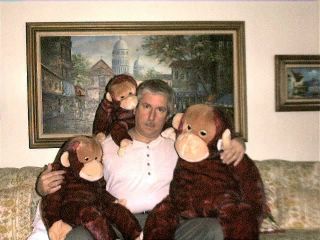When Old is New
The human side of medicine has been forgotten or, at the least, overlooked for far too long now. Patients’ emotions and concerns are no less important than their physical ailments. To ignore the former inevitably exacerbates the latter. The human mind and spirit are quite sensitive and all too discerning. They sense a wolf in sheep’s clothing and a physician in a hurry. While this has become the status quo, the name of the game should be patience and putting the patient’s psyche at ease. When this is accomplished, only good things can follow.
The attitude and conduct of a physician in the presence of a patient, namely bedside manner, is an art form created and perfected over countless years of observation and relation to innumerable faces whose names are long forgotten. The maladies etched in those countenances, however, are the stuff of a physician’s long-term memory, sleepless nights, and vivid nightmares. Doctors of old knew this, and sought every conceivable opportunity to learn from their patients. Medical texts and learning tools were mere ancillary implements, clarifying a gospel expounded by the sick, but not replacing it. Our healers of today, with their personal data assistants (PDAs), laptop computers, portable instruments, and fiber optics are more “wired” than ever to their patients, and yet there is no real connection. What Bruce Springsteen once said in a lyric, our men and women in white have forgotten in a song. The intangible power of “human touch” is what makes the moderately or severely ill feel secure, supported, cared for, and understood. Human touch is what makes them get better.
As doctors hurry between examining rooms, hide in inner sanctums, and shield themselves behind legions of gatekeepers, they lose sight of the fact that they are fooling no one. The sick, for the most part, recognize that their health care providers are human, and stressed out over the demands and productivity of managed care. So, why not meet each other half way? Symbiosis is a beautiful thing, and give-and-take can be mutually beneficial. A joke, a pat on the back, or the mischievous wink of an eye consumes seconds, minutes at most. The return on it, in an outpatient, can be notable, especially since upwards of 80% of people who visit a medical office are not stricken by strange and exotic medical dilemmas. They simple don’t feel well. Complicity, in the noblest sense of the word, in resolving the day-to-day trials and tribulations of a patient’s life, not only achieves more than truckloads of medical silver bullets and heroic measures, but is curative in most cases.
Inpatients, on the other hand, are horses of a different color. While computers and electronic medical records enable our knights in white armor to detail and annotate a myriad of signs, symptoms, and complaints from A to Z, archival collections of bytes are as useless as buried treasure, if the reasons for their existence succumb for wont of humanity and psychologic sustenance, rather than science.
Placebos, psychosomatics, and hypochondriasis have shown us that the mind really does exert an overbearing influence on matter. That being the case, why has it taken so long for physicians to embrace this, or, if they accept it as a forgone conclusion, why have they been so reluctant to put the tenet into practice? Shakespeare stated it succinctly in Julius Caesar, “Men at some time are masters of their fates. The fault, Dear Brutus, is not in our stars, but in ourselves, that we are underlings.” As physicians, we must break the current mold, and, not meaning to sound trite, proverbially return to the future.
Patients must never be backed into a corner, left to apply the principle of caveat emptor, i.e., that they be ultimately responsible for assessing and directing the quality of their medical care. That onus rests proactively with their caregivers, whose return to the old will inevitably revitalize the new.
© 2007, Albert M. Balesh, M.D. All rights reserved.


2 Comments:
Dr. Al,
I don't know if anyone longs for the days of enemas! That said, you have an excellent point. Too much of the loving art of medicine has gone by the wayside. I wouldn't say it is all gone, nor forever, but too many medical "providers" do forget those human touches that can mean so much.
Thanks for putting it into words.
Peg
By Peg Spencer, at Monday, May 07, 2007 9:06:00 AM
Peg Spencer, at Monday, May 07, 2007 9:06:00 AM
And what's wrong with enemas, Dr. Peg? Some of the finest people I know have had them and continue to enjoy them. Thank you, as usual, for your timely comments. Dr. Al
By Dr. Al, at Monday, May 07, 2007 12:23:00 PM
Dr. Al, at Monday, May 07, 2007 12:23:00 PM
Post a Comment
<< Home